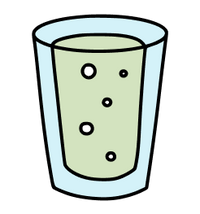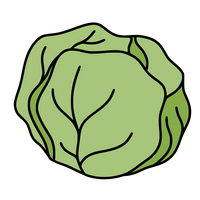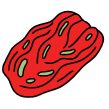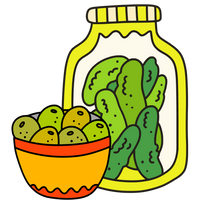
Dairy is often a hot topic when it comes to gut health. Some say it’s a gut-friendly superfood, while others claim it’s a digestive disaster. The truth? It’s a bit of both. In this blog, we’ll explore the pros and cons of dairy, its impact on gut health, debunk some common myths, and guide you to the best dairy choices for a healthy gut. Stick around until the end to find out why dairy + OMP Ferments = the PERFECT snack!
Related: Are Fermented Foods Safe? The Truth About Harmful Bacteria and Top 11 Probiotic Foods for Optimal Gut Health

Dairy's Bad Reputation
Dairy has earned a bit of a bad rep, and not without reason. Some say it tears apart their stomach, others say it’s gross. But there are so many delicious foods and drinks made with dairy; CHEESE, yogurt, lattes, ice cream – do we really need to break up with dairy if we want to attain a healthy gut?
Before we answer that question, let’s go over the top two concerns we generally hear when it comes to consuming dairy. We’re also going to let you in on some intel most people don’t know about dairy’s dirty past.
Dairy Intolerances and Allergies
Lactose intolerance is one of the most common issues with dairy consumption. This condition arises when the body can’t produce enough lactase, the enzyme needed to digest lactose (a sugar in dairy), leading to symptoms like bloating, gas, and diarrhea. Approximately 68% of the global population has some level of lactose intolerance[1], making it a significant concern.
If the main issue is not having the lactase enzyme, is there a way around that? Hold that thought and go read about the importance of enzymes in this post. If you’re short on time, here’s the spark notes – enzymes are critical to overall health and raw foods contain food enzymes that help with digestion.
Most milk today is pasteurized (more on that in a minute) which heats the milk to kill pathogens, but it also kills all the enzymes, most of the nutrients, and alters the protein structure. Without food enzymes to help with digestion and the milk proteins not being in their natural state, it makes sense that many people struggle to digest dairy.

The “Humans Are the Only Species” Argument
You’ve probably heard the claim: “Humans are the only species that drink the breast milk of another mammal!” While this is technically true, it’s also irrelevant. Humans do many things other species don’t, like cooking food, building cities, and flying to the moon. People love to tout this as an argument against dairy consumption, but it doesn't mean dairy is bad for us.
Pasteurization: Necessary or Harmful?
In the late 1880’s and 1890’s, many people died from drinking milk that came from cows kept in filthy conditions. These urban dairies were in city centers like Boston and New York during the industrial revolution. Their cows were packed together in filthy pens, a breeding ground for bacteria and disease. To remain in business and keep production up with growing demands, they needed a fast solution for their dirty milk.
Enter pasteurization, originally invented to preserve beer and wine, dairy distilleries started using it to cover up their dirty milk. Pasteurization is the process of heating milk to kill bacteria. While it does make milk safer in unsanitary conditions, it also destroys beneficial enzymes and vitamins.

Pasteurized milk has up to 66% loss of vitamins A, D and E and 100% loss of B vitamins and good bacteria for a healthy gut.[2] Pasteurization makes it harder for the body to absorb calcium, and the altered proteins it creates are known to cause respiratory allergies.
Ultimately, pasteurized milk is not doing your body any favors, and for many it’s causing undesirable symptoms. So, while there was a time and place for pasteurizing milk, that has long since passed. Pasteurized milk has only stuck around because it is easier and cheaper for mass production and dairy processors would be out of business if we stopped pasteurizing milk.
Raw Dairy for Gut Health
Now that we’ve covered the mainstream issues with dairy, we can get to what you really want to know – Is dairy good for gut health? Here at OMP we’re big fans of raw and fermented foods, and that includes raw milk! Before we get into the benefits of raw milk, let’s address the elephant in the room…
Isn’t Raw Milk Dangerous??
This one freaks people out! There’s a widespread belief that raw milk is dangerous, but with modern hygiene standards and proper handling, raw milk can be extremely safe.
We talked about how raw milk got a bad rep during the industrial revolution, and how the issue stemmed from dirty urban dairies. Today there are two types of raw milk; one intended for pasteurization, and one intended for direct human consumption. They couldn’t be more different.
Dairy farms that produce milk for pasteurization have Concentrated Animal Feeding Operations (CAFOs) where the cows are living in confinement and the animal yard is covered in manure. One third of the cows in these CAFOs have mastitis, an infection of the udders, and are often given antibiotics and hormones. These cows are typically fed grain-based diets which make them sick. Since these dairies know their milk will be pasteurized, they don’t spend the time and money to keep clean facilities or healthy living conditions.

Dairy farms that produce milk for direct human consumption have cows raised on open green pastures, eating the diet that nature intended for them, which is grass. These cows are clean and healthy. The farmers typically clean the udders prior to milking, and if a cow shows symptoms of mastitis their milk is not used. The milk is bottled directly on the farm in a bottling room that is kept clean and hygienic.
There are four main pathogen concerns with milk: E coli, listeria mono, salmonella, and campylobacter. The two most common sources of these pathogens in milk are manure and mastitis, meaning our dairy farmers producing raw milk for direct human consumption can avoid these pathogens.
There have been recent studies in Canada and Europe that tested these two types of milk for pathogens, and the results were incredibly supportive of the case for raw milk! You can read more about that here. Out of the thousands of milk samples tested from raw milk intended for direct human consumption, there were ZERO pathogens detected![3]
Health Benefits of Raw Dairy
Raw milk is rich in natural enzymes, beneficial bacteria, vitamins A, D, E, K2, C, B Vitamins and minerals like calcium, phosphorus, and zinc. These components aid digestion and boost the immune system. Unlike pasteurized milk, raw milk helps the body produce lactase in the intestines, which is why so many people who are lactose intolerant do just fine with raw milk.
With 700 different types of good bacteria in raw milk, it adds diversity to your gut microbiome. That’s because breast milk is how babies build their immune system! In fact, societies as far back as 9000 years drank raw milk for its protein, fat, and immune boosting power.
If you’re a parent, we know you’ll appreciate this one. There are studies from Europe showing that children who drink raw milk have lower rates of asthma, allergies, eczema, and ear infections. Drinking raw milk may just save you some sick days!
Raw milk truly is a powerhouse of nutrients and can be a great addition to a gut-healthy diet! If you want to read more about the healing powers of raw milk, check out this article by the Weston A. Price Foundation.
Finding Raw Dairy Near You
We get that finding raw dairy isn’t typically as simple as stopping by your neighborhood grocery store. Locating raw dairy products can be a challenge, but it's becoming increasingly accessible. Farmer’s markets, natural food markets, and online farm share deliveries are becoming more popular.
The Raw Milk Finder is a great starting point to search for local dairy farms in your area.
Just like Olive My Pickle’s Ferments, the price tag on raw milk is higher than the conventional alternative. At OMP and on small dairy farms, the product is hand-crafted and produced following family traditions of generations past. The quality of the product is unmatched, and with all the health benefits of enzymes, probiotics, vitamins, and minerals, it equips your body to keep you healthier.
Our Favorite Dairy Foods and Snacks
Raw is better. Fermented is best! We may be a little biased, but our favorite way to eat dairy is fermented! It’s full of even more healthy bacteria and fermenting dairy starts to break down lactose and casein (a milk protein), making it easier to digest even for our lactose intolerant folks.
Kefir
Kefir is a fermented milk drink loaded with probiotics, which support a healthy gut microbiome. It’s more potent than yogurt in terms of probiotic content and is easier to digest due to the fermentation process breaking down lactose.
Add kefir to smoothies, use in creamy salad dressing recipes, or enjoy on its own as a snack!
REAL Yogurt
We’re not talking about that low-fat stuff full of sugar! Most store-bought yogurts have as much sugar as a serving of ice cream and are low in probiotics. The key to choosing a yogurt that’s good for your gut is to look for one that’s full-fat and very low sugar. Yogurt made from raw milk is best, although it can be harder to find, it’s typically available at local farmer’s markets.

The Perfect Snack: Cheese + OMP Ferments
Cheese made from raw milk is another excellent choice. It contains all the beneficial enzymes and bacteria that pasteurized cheese lacks. When combined with our fermented foods it’s a match made in heaven! The ferments pack in even more enzymes and probiotics, while the fat in cheese helps your body better absorb all the fat-soluble vitamins in both. Here are three quick and easy snack combos we love:
- Grab some gluten free seed crackers, spread on some goat cheese, and top with your favorite OMP Sauerkraut. We love the Heat + Spicy Fermented Sauerkraut!
- Make a mini charcuterie! Slice some raw gouda cheese and eat alongside our Greek Olive Mix
- Pickle bite sammies! Slice a Kosher Dill Pickle into coins. Start with one slice of pickle, then stack with a piece of sliced cheese and sliced turkey. Top with another slice of pickle and secure with a toothpick.
Want to add these to your meal plan next week? Grab a box of the OMP ingredients!
The Verdict: Quality Dairy for a Healthy Gut
While dairy often gets a bad reputation, choosing the right type of dairy can make a big difference. Raw and fermented dairy products offer a wealth of health benefits, from aiding digestion to boosting the immune system. These products retain essential enzymes, vitamins, and beneficial bacteria that pasteurized versions lack. While pasteurizing milk was necessary back in the late 1800’s, it’s time to leave that in the past. Pasteurization is what triggers intolerances and allergies, and its best to limit it within your diet. Good news is you can keep enjoying your favorite dairy foods and drinks, just go raw!
References
[1] https://www.niddk.nih.gov/health-information/digestive-diseases/lactose-intolerance/definition-facts
[2] https://www.westonaprice.org/health-topics/making-it-practical/milk-it-does-a-body-good
[3] https://www.rawmilkinstitute.org/updates/two-types-of-raw-milk
DISCLAIMER: THIS WEBSITE DOES NOT PROVIDE MEDICAL ADVICE
The content on this website is for informational or educational purposes only and does not substitute professional medical advice or consultations with healthcare professionals. Always seek the advice of your physician or other qualified healthcare provider(s) with any questions you have regarding a medical condition or treatment and before undertaking a new health care regimen.










